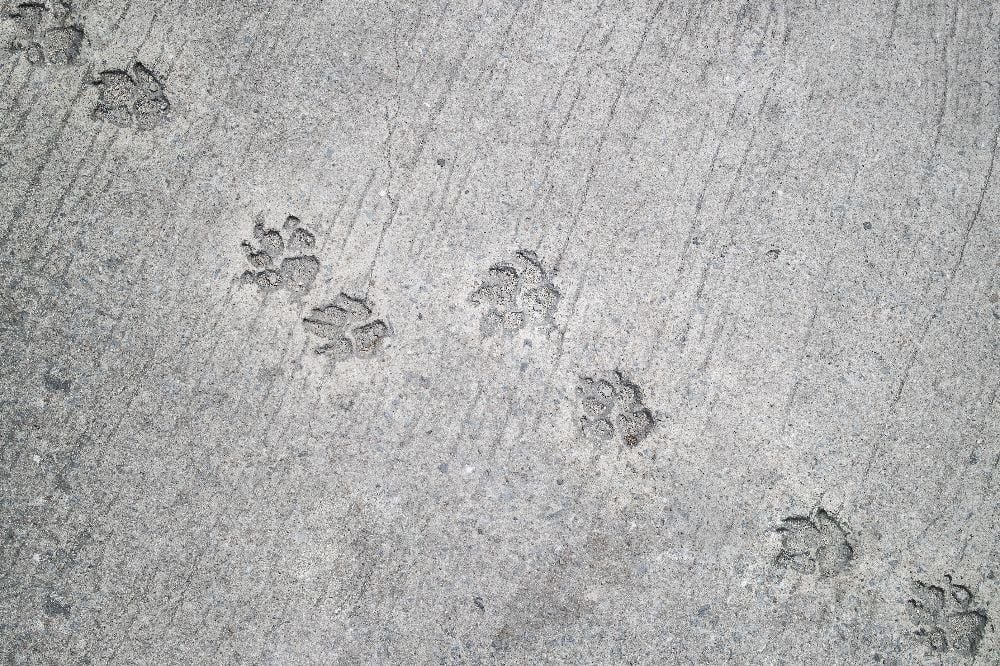Topics:
Search for topics or resources
Enter your search below and hit enter or click the search icon.
Providing your email address will keep you updated should we need to provide updates specific to your location.

Sometimes replacing concrete is the best course of action for the problems your existing concrete is facing, but there are significant risks to consider when debating whether to tear out what’s there and pour new.
Over the last 30 years here at A-1 Concrete Leveling, we've encountered countless customers dealing with complications from their newly poured concrete.
This article will walk you through the most common risks associated with getting new concrete installed, so you can be aware of the potential outcome and make a better informed decision when it comes to repair vs. replacement.

Newly poured concrete is more likely to settle, usually within the first 5-10 years after installation. This is because the soil and base materials that the concrete sits on often haven't been prepared properly or had the proper time to settle and compact naturally.
When new concrete is installed, the dirt underneath is often disturbed during the installation process. This loosened soil will eventually settle again, but this time it may bring the new slab with it, leading to uneven surfaces and potentially costly repairs down the line.
Some contractors may not add a dense stone base before pouring your new concrete. However, pouring concrete directly on soil can cause moisture to be held against the underside of the concrete slab, leading to premature deterioration and a high chance of future settling and shifting from movement within the soil.

Concrete can last for decades when manufactured correctly and maintained well. However, the quality of the batch of concrete you get can influence problems like surface spalling, crumbling, and cracking throughout the concrete’s lifespan.
Some things that can affect the quality of your concrete batch are:
The concrete you currently have has already cured and stood the test of time, so you're familiar with its quality. New concrete can be a mixed bag, which is a risk you have to take with replacement.

If your lawn, landscaping, or trees are something you take pride in, concrete replacement can be risky, especially depending on the area needing replacement.
During the concrete replacement process, heavy and large equipment must make its way to the site. This equipment can easily disturb flower beds, grass, and other landscaping, leaving you with a mess and additional costs to fix the damage.

Similar to the risk of damage to landscaping and lawns, the large, heavy equipment needed for concrete replacement can also potentially damage other parts of your property.
Because concrete trucks and other equipment are so large and heavy, driving them onto concrete driveways or other areas to access the replacement site comes with the risk of damaging existing concrete, asphalt, or other surface

Waiting to use the concrete normally again can be frustrating as concrete takes a long time to cure. There's also the potential for it to be scuffed or dinged during the curing process.
However, this could also play to your advantage. Seeing a furry friend’s paw prints trapped in a concrete driveway or sidewalk will always bring a smile to your neighbors’ faces as they walk by your home!

Even when everything is done correctly, new concrete often develops cracks. These cracks can be due to various factors such as shrinkage during the curing process, temperature changes, or even slight movement in the underlying soil.
While some cracking is almost inevitable, it can be disappointing to see these imperfections appear in what was expected to be a flawless new surface.

New concrete is usually quite hard to match to the existing concrete around your home. The color or texture will likely be different, which can be a significant concern if you're only replacing a portion of a driveway, patio, or walkway.
Even slight differences in color or finish can be noticeable and may detract from the overall appearance of your property.
Concrete replacement is often more expensive than other repair options, such as concrete leveling or resurfacing.
The costs include not just the material and labor but also potential additional expenses related to landscaping repair, longer downtime while the concrete cures, and the risk of needing future repairs if problems arise.
You can learn more about those options in our concrete repair cost guide, but there’s a reason we confidently say that A-1 Concrete Leveling’s leveling services can save you up to 70% off the cost of replacement.
Choosing to get new concrete is a big decision, and the risks involved should be carefully considered when determining if it’s the right move for your home.
Overall, concrete replacement can be a great option when the existing concrete is too far gone for repair. However, things like settled slabs, trip hazards, and cracks can usually be fixed for a fraction of the cost.
If you think your existing concrete may be salvageable and you’re unsure whether the benefits of replacement outweigh the hassle and risks involved, consider learning more about concrete repair with Concrete Academy, A-1’s online learning center.
You can also request a free pricing estimate with an expert member of our concrete repair team to learn more about your options.
Sarah Etler joined A-1 Concrete Leveling after receiving her Bachelor of Arts degree in English from Northern Kentucky University. As A-1's Content Marketing Manager, she works closely with industry experts to produce content that will best answer questions related to concrete repair and maintenance practices. Sarah loves living a life full of discovery and is excited every day to see what new things she can learn and share with those around her.
Topics: